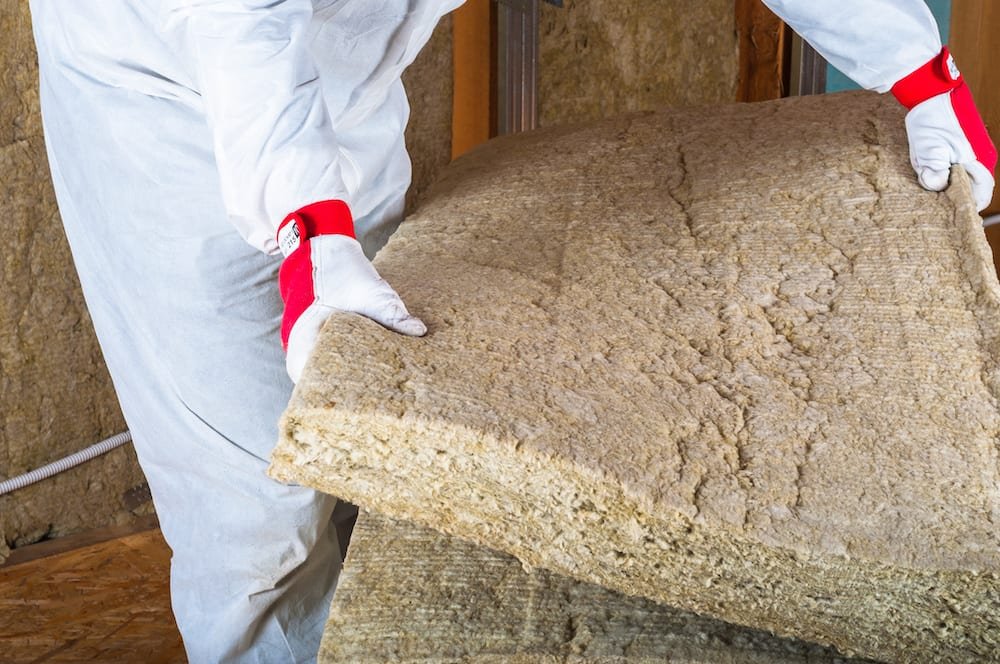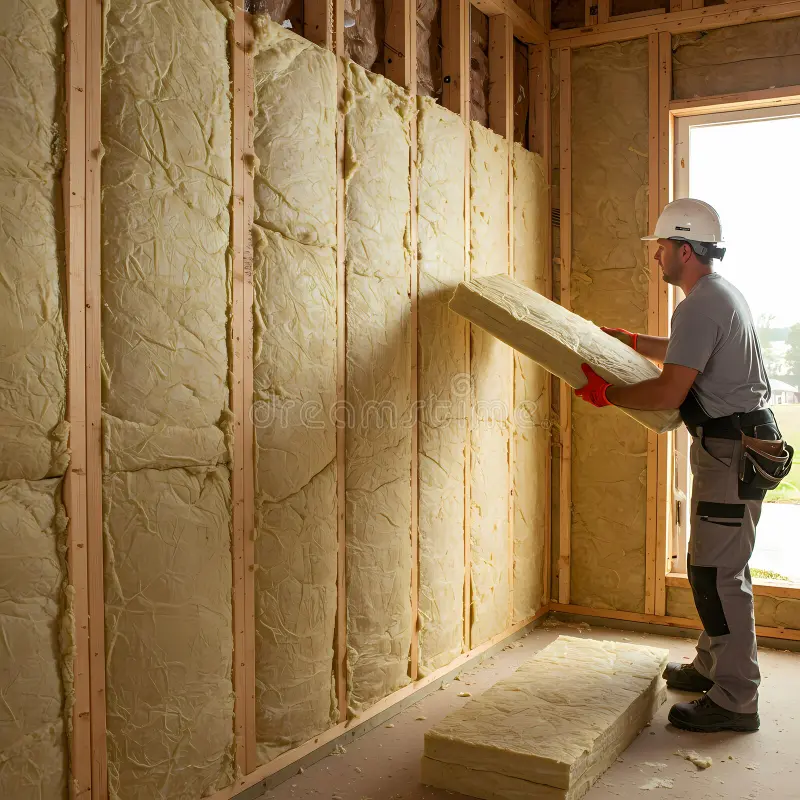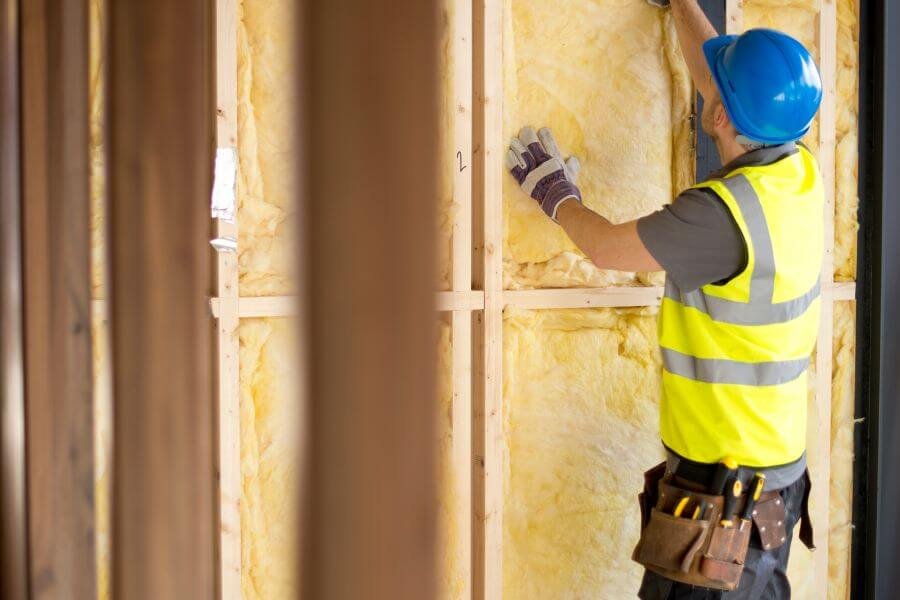Insulating for the energy efficient residences and commercial buildings of today has to be one of the most fundamental keys to temperature control and energy savings. Rockwool insulation is one of the best insulating materials I have had the pleasure of using, and I would absolutely recommend doing so. Whether you need thermal insulation to keep your building warm in the winter, or acoustic insulation to keep the noise out, Rockwool can help. In this blog, we will focus on the advantages of Rockwool insulation and compare it to the likes of glass wool insulation.

What is Rockwool Insulation?
What is Rockwool Insulation? Rockwool is a natural, sustainable, product that is made from stone. It is made by melting volcanic rock, or basalt rock, at very high temperatures and spinning the molten rock into fibers, which are used to make insulation. As one of the most effective forms of thermal insulation, Rockwool also serves to moderate temperatures in winter and summer; as it prevents heat loss of entering into your home during the winter and heat invading your living spaces in summer. It also provides good acoustic insulation, making it ideal for applications where sounds should be kept either in or out of a room/space. This thermal and acoustic performance makes Rockwool insulation the preferred choice for residential insulation and commercial insulation solutions. Useful especially in applications where high performance is desired, including roofs, walls, and ceilings, it is also a preferred solution for achieving energy efficiency and comfort in a variety of building structures.
Why is Rockwool Ideal for Thermal and Acoustic Control?

When it comes to thermal and acoustic controlling, Rockwool insulation is the final answer. Here’s why:
Superior Thermal Insulation:
Rockwool insulation has excellent resistance to heat which is perfect if you want to maintain the temperature within your building. During the summer months, it helps reduce heat loss so your space keeps warm and snug in the winter as well as cool and comfortable in the summer. In the summer, it can block unwanted heat from the sun, keeping your property cool and lowering the need for air conditioning. This combination of virtues makes it an ideal fill insulation, in roof insulation and for other general thermal insulation.
Effective Acoustic Insulation:
Among the most interesting Rockwool properties is its ability to insulate against sound. Rockwool is also heavily fibrous, which means it absorbs sound waves, drastically minimising noise crossover between rooms and from the outside. It is ideal for rooms having unfinished walls/ceilings, for sound-proofing ;Its application is perfect for home, office, music studio and so on. Rockwool insulation Quieter environments You’re in a noisy vicinity or you require peaceful spaces for work Rockwool insulation is your sound control solution.
Fire Resistance:
Rockwool, by contrast, is naturally fire-resistant and does not easily catch fire, unlike many other insulation products. This property makes it an excellent option for anything that needs to have a fire rating including beams, roofing, and walls. And because it is heat resistant and can serve as a layer of flame retardant, no structure is complete without it.
Moisture Resistance:
Rockwool also resists moisture and this is a great plus. That means it doesn’t soak up water or encourage the growth of mold, something that can be a worry with some other insulation materials. This makes Rockwool a suitable choice for a place like the basement (which tends to be much damper), attics, or even the roof (where moisture accumulation could lead to damage to your buildings).
Sustainability:
Rockwool insulation is a green option. It’s also built of natural materials, basalt and volcanic rock, and it is 100% recyclable and sustainable. If you are seeking an insulation option that meets these are a few of the primary benefits of using Rockwool as an insulation material.
Long-lasting Performance:
Rockwool also doesn’t degrade after steaming, dries out, or rot. 10. And it keeps its performance even over time, so you don’t have to worry about it needing to be replaced so frequently, powerless or not. This is a lot more cost-effective in the long run for a home or office building.
How Does Glass Wool Insulation Compare to Rockwool?
Glass wool insulation is one of the cheaper choices, but Rockwool has some unique inherent advantages. Both materials have good thermal and acoustic insulation qualities, but Rockwool can withstand higher temperatures, is better for fire resistance and water resistant. It is also more durable than glass wool that can easily break down over time.
How Can Rockwool Insulation Enhance Your Roof’s Efficiency?
Roof Insulation Is Vital Keeping the inside of your home at a consistent temperature is important. A great choice for keeping your roof insulated is rockwool, as it stops heat being lost during the winter, and keeps your home cool in the summer. It also aids in eliminating condensation and the development of moisture, which can lead to mold, so often found in poorly insulated roofs.
Where to Use Insulation Services for Optimal Efficiency?
To help reduce energy cost, you need HVAC Installation services from Airlution that keep indoor air optimal, with insulation preventing the loss of heated or cooled air! So, the Rockwool insulation materials are well-suited for thermal as well as acoustic insulation purposes and can be used on walls, ceiling, and roof-undersides of both residential as well as commercial buildings. Fiberglass insulation is also an excellent source of temperature regulation and energy conserving. For larger structures, industrial duct insulation makes certain your HVAC system operates at peak efficiency while preventing the loss of air temperature. Pre-insulated duct systems help in saving installation time and improve energy efficiency by insulating from air temperature changes.
Conclusion
If you are trying to improve the insulation in your home or place of business, then rockwool insulation may be the right solution for you. Rockwool’s higher r- value provides incredible thermal insulation to help save you money all year round. However, its superior acoustic insulation characteristics, further allows a noise reduction effect to be achieved, thus leaving a quieter and more relaxed environment. Can be used on walls, ceilings and roof insulation’s ability to retain warmth will contribute to its effectiveness for over the life of the building. It is also resistant to fire and water, offering an extra level of protection for your property. And constructed from environmentally sustainable volcanic rock, it’s even eco-friendly and 100-percent recyclable, promoting energy-efficient and green building opportunities. Rockwool insulation provides a comfortable and safe indoor environment as well as energy savings with its thermal, acoustic and environmental property combinations for any space.
FAQs
What is Rockwool insulation?
Rockwool insulation is derived from volcanic rock and provides both sound and thermal insulation for homes and businesses.
What does Rockwool insulation do for energy efficiency?
Rockwool insulation is very helpful in that it will keep heat in during the winter to keep your home warm, and will keep heat out of your home during the warmer months of summer.
Can Rockwool insulation reduce noise?
Yes, Rockwool is very dense and fibrous which will absorb sound, perfect when you want peace and quiet either between rooms or from the outdoors.
Is Rockwool fire-resistant?
Rockwool insulation is naturally fire-resistant, making it an excellent choice for withstanding high heat and preventing the spread of fire.
Is Rockwool insulation eco-friendly?
Yes Rockwool is produced using natural volcanic rock and is 100% recyclable and has eco-friendly green building production.

